- We aggregate scores from multiple trusted sources to devise a single metascore ranking. Currently we aggregate scores from various sources among which: GoodReads, Amazon, Kobo, Indigo, Thriftbooks, Google Play...
- You can filter books by author or genre.
- You can sort books according to their publication date or metascore.
- Our recommendations are purely data-driven, ensuring a completely unbiased selection.
Books I'd Like to Read
By the readers. For the readers.
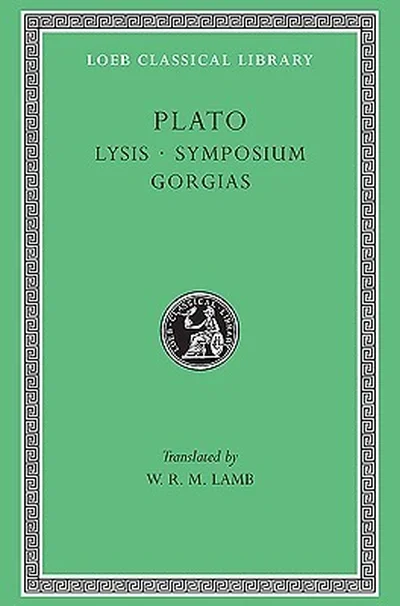
Lysis/Symposium/Gorgias
-

#1
Synopsis: Plato, the Athenian philosopher born in 427 BCE, was a student of Socrates and later established a philosophical school in the grove of Academus. His life remains partially uncertain, but it is believed he left Athens after Socrates' execution and may have traveled to Cyrene, Egypt, and Sicily. Known for his criticism of democracy, Plato lived to be 80 years old. His philosophical dialogues, recognized for their eloquent prose, encapsulate Socratic thought. In "Laches," "Charmides," and "Lysis," Socratic discussions focus on ethics. "Protagoras," "Ion," and "Meno" explore the teachability of righteousness. "Gorgias" presents Socrates' alienation from Athenian values as he approaches his fate. Other works, such as "The Apology," "Crito," "Euthyphro," and "Phaedo," address the trial and death of Socrates and explore the immortality of the soul. In "Symposium" and "Phaedrus," Plato examines the nature of love. "Cratylus" investigates language, while the ten books of "The Republic" discuss righteousness, education, gender equality, societal structure, and the abolition of slavery. The six dialectical dialogues include "Euthydemus" on philosophy and "Parmenides" on metaphysics. The "Theaetetus" addresses epistemology, while its sequels explore themes of being and governance in "Sophist" and "Politicus," and examine the concept of good in "Philebus." "Timaeus" seeks the origins of the cosmos, and "Critias," an unfinished work, addresses the legend of Atlantis. Plato's last work, the twelve books of "Laws," discusses legal principles deemed acceptable for the Greeks, though Socrates does not appear in this text.
7.23
Interested? You can buy this book from the following affiliate links: -
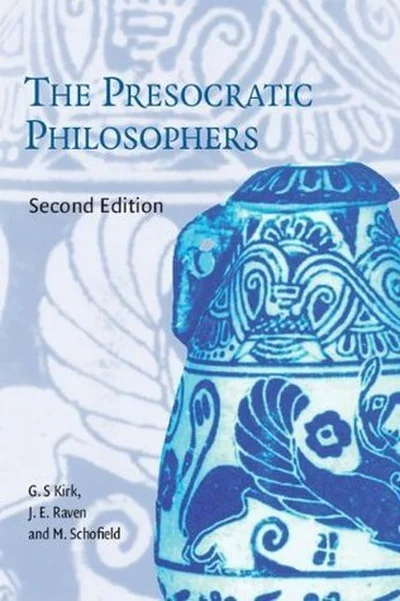
#2
Synopsis: This book explores the intellectual revolution initiated by Thales in the sixth century BC, culminating in the metaphysics of Parmenides and the physical theories of Anaxagoras and the Atomists in the fifth century. It includes a selection of around six hundred Greek texts with close English translations, forming the basis for a detailed critical study of the principal thinkers of the era. This work serves as an essential resource for undergraduate and graduate courses in Greek philosophy and the history of science, appealing to readers interested in philosophy, theology, and the history of ideas in the ancient world.
6.86
Interested? You can buy this book from the following affiliate links: -
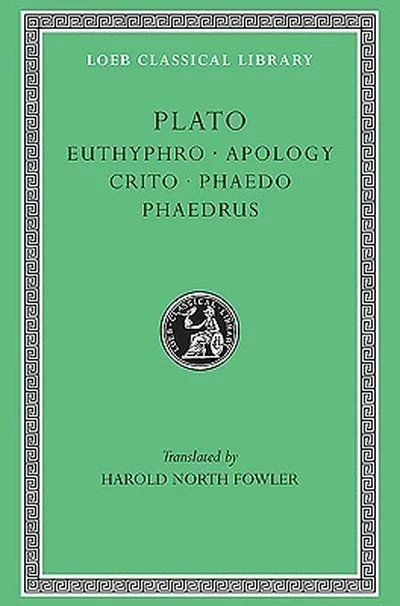
#3
Synopsis: Plato, the influential philosopher of Athens, was born in 427 BCE and was a student of Socrates. He later founded the Academy, a significant philosophical school. His life included travels to places like Cyrene and Sicily, and he was known for his critical views on democracy. He lived to be 80 years old, and his philosophical dialogues, noted for their elegant prose, reflect conversations that blend Socrates' ideas with his own. In works such as "Laches," "Charmides," and "Lysis," ethical concepts are explored through discussions among Socrates and others. "Protagoras," "Ion," and "Meno" question whether righteousness can be taught. In "Gorgias," Socrates finds himself at odds with Athenian thought, leading to his impending fate, which is examined in "Apology," "Crito," "Euthyphro," and "Phaedo," where the themes of trial, death, and the immortality of the soul are prominent. The "Symposium" and "Phaedrus" delve into the concepts of love, while "Cratylus" focuses on language. The "Republic," a cornerstone of his work, addresses righteousness, education, gender equality, societal structure, and the abolition of slavery. His dialectical dialogues, including "Euthydemus," "Parmenides," "Theaetetus," "Sophist," "Politicus," and "Philebus," tackle various philosophical themes, from metaphysics to governance. The "Timaeus" explores the universe's origins, and "Critias" discusses the legend of Atlantis. Plato's final work, the twelve books of "Laws," critiques legal principles relevant to Greek society.
6.84
Interested? You can buy this book from the following affiliate links: -
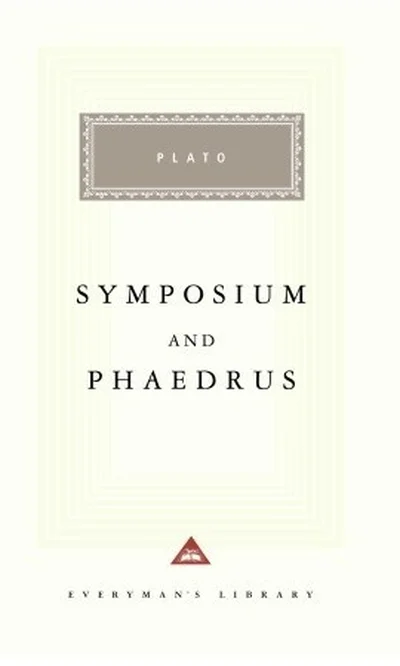
#4
Synopsis: Plato's "Symposium" is a delightful and accessible dialogue set during a party in fifth-century B.C. Athens. Through convivial after-dinner conversation, it presents profound ideas about the nature of love. Accompanying it is "Phaedrus," where Plato explores the role of eloquence in conveying truth. In both dialogues, Socrates guides the discussion with wit and insight, delving into concepts that have shaped Western thought.
6.71
Interested? You can buy this book from the following affiliate links: -
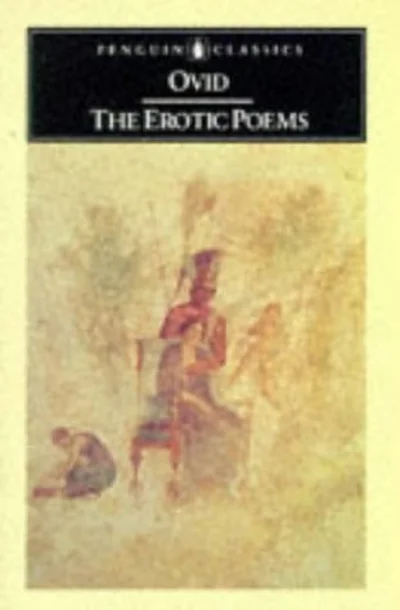
#5
Synopsis: This collection of Ovid’s poems explores the full range of sexual desire, from heartfelt declarations of love to playful arguments for promiscuity. In the Amores, Ovid writes elegies to his mistress Corinna, displaying a vulnerable side. This contrasts with the Art of Love, where he offers a witty guide to seduction, a work that led to his banishment from Rome in AD 8. The volume also features “Cures for Love,” offering advice on ending affairs, and “On Facial Treatment for Ladies,” an incomplete poem on cosmetics.
6.68
Interested? You can buy this book from the following affiliate links: -
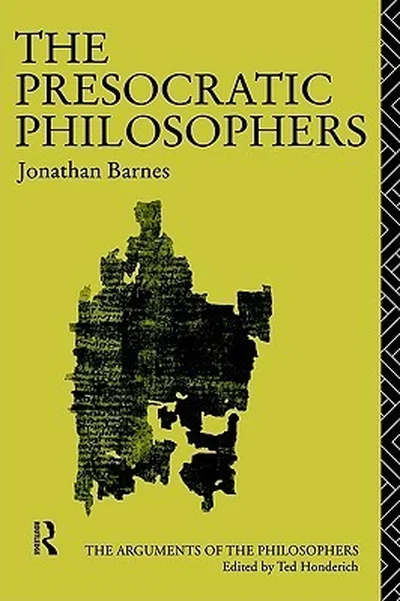
#6
Synopsis: This volume provides a comprehensive exposition of the arguments of the Presocratics, the founding figures of Western philosophy and rational thought. It offers a rigorous assessment of their contributions to philosophical inquiry.
6.66
Interested? You can buy this book from the following affiliate links: -
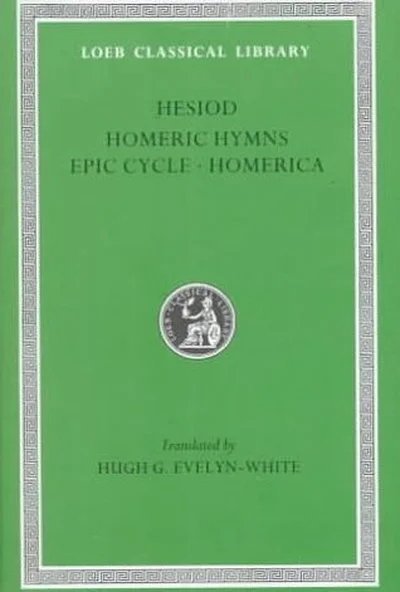
#7
Synopsis: This book presents Greek texts with English translations on facing pages. It includes the complete works of Hesiod and almost all that remains of post-Homeric and pre-academic epic poetry, featuring: - Preface - Hesiod - The Homeric Hymns - The Epigrams of Homer - The Epic Cycle - Homerica: The Expedition of Amphiaraüs, The Taking of Oechalia, The Procasi, The Margites, The Cercopes, The Battle of the Frogs and Mice, The Contest of Homer and Hesiod - Index
6.56
Interested? You can buy this book from the following affiliate links: -
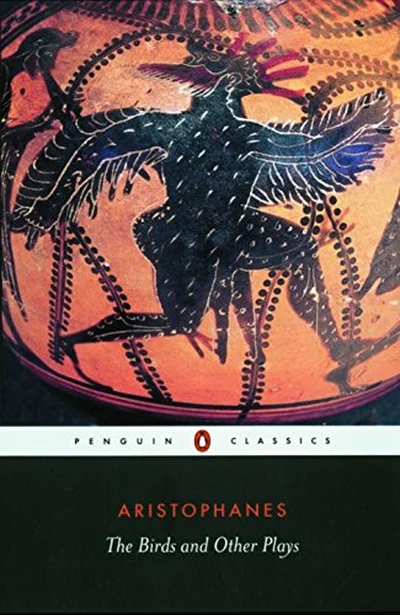
#8
Synopsis: Aristophanes' *The Birds and Other Plays* offers a glimpse into the lives of ordinary Athenians through a collection of comedies filled with clever satire and slapstick humor. Translated from the Greek by David Barrett and Alan H. Sommerstein, the plays showcase Aristophanes' signature bawdy comedy and verbal skill. In *The Birds*, two Athenians convince the birds to create a utopian city in the sky, shutting out the Olympian gods. *The Knights* satirizes the Athenian demagogue Cleon as he competes with a sausage-seller for public favor. *The Assembly-Women* humorously explores the battle of the sexes, featuring Athenian women infiltrating the all-male Assembly. The theme of the lengthy conflict with Sparta is tackled in *Peace*, while *Wealth* critiques the economic downturn of Athens post-war. The introduction provides context on Aristophanes' life and the themes in his works, along with notes for each play. Aristophanes (c. 445-386 BC), likely born in Athens, produced his first comedy around the age of twenty-one and is recognized for his keen political insights and contributions to Athenian civic unity.
6.56
Interested? You can buy this book from the following affiliate links: -

#9
Synopsis: Herodotus is recognized as the father of historical writing and a captivating storyteller. In narratives like that of Gyges, who murders King Candaules of Lydia and claims his throne, he reveals the complex human connections that drive significant historical events. His history weaves together remarkable facts of the world with a keen sense of the mythic and the extraordinary.
6.53
Interested? You can buy this book from the following affiliate links: -
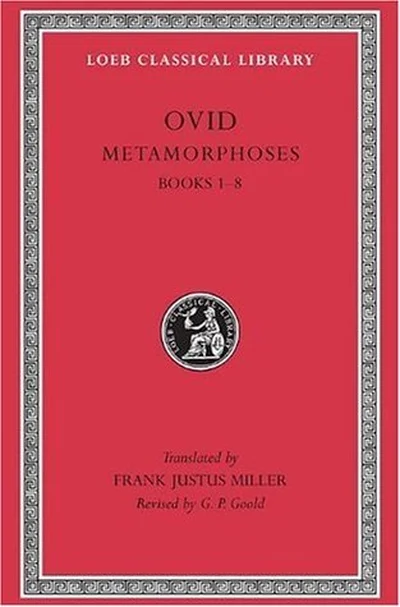
#10
Synopsis: The Metamorphoses is a narrative poem by the Roman poet Ovid, comprising fifteen books and over 250 myths. It chronicles the history of the world from its creation to the deification of Julius Caesar within a mythico-historical framework. Key themes include various transformations and legendary stories such as the creation, the flood, the tales of Apollo and Daphne, Cadmus, and the Minotaur, as well as characters like Medea, Theseus, and Narcissus. The work explores themes of change, love, and the interplay between gods and mortals.
6.37
Interested? You can buy this book from the following affiliate links: